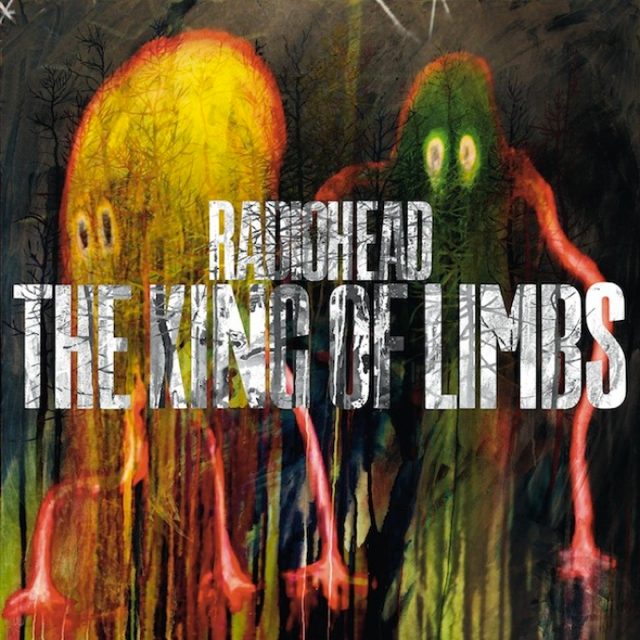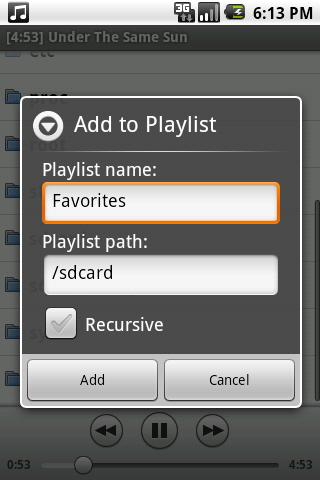
Why shouldn’t a digital download be better, not worse, than a CD release?
Sit in a studio as most of your favorite albums are recorded, mixed, and mastered, and odds are the digital material is being recorded at higher bit depths and sample rates. And while the perceptual record is more mixed, there’s also no question that, in terms of data, lossy compression schemes like MP3 do demand some loss in audio information. (Lossless schemes like FLAC, by contrast, use less data but do so without sacrificing sound information.)
All of this means that it’s news that you can get Radiohead’s “The King of Limbs” album in 24-bit, lossless FLAC. It’s the first time there’s been a major artist doing this kind of release online, say 7Digital – and, in turn, the first step back toward greater fidelity after the step backward from 16-bit, 44.1kHz lossless audio CDs to the lossy versions available now. By “first,” I can only imagine they mean on 7Digital; if you like this sort of release, it’s worth checking out HDtracks, an online store with content all going this direction (and lots of FLAC):
https://www.hdtracks.com/index.php
It’s also the latest case that demonstrates that iTunes need not be your only online store for music. UK rival 7digital is the first and only digital store to offer up the band’s brilliant “The King of Kimbs” in 24-bit FLAC.
http://7digital.com
Deluxe release @ 7digital [US link]
Whether their listeners can really hear the difference or not, it’s likely stores will begin to move to greater audio fidelity. For their part, 7digital says that the 24-bit FLAC codec for Radiohead “is the first step in 7digital’s move towards higher quality digital music downloads.” The reasoning is pretty simple. Bandwidth and storage costs are getting smaller for online stores as those stores grow and better leverage server infrastructure. Storage is generally cheaper now than it had been, too, though somewhat mitigated by the increasing popularity of solid state flash memory over larger, cheaper hard disk drives. But most of all, stores are likely to respond to artist and listener demand, particularly as resellers try to differentiate themselves from streaming sound and justify your purchase. It’s likely labels may also look to formats like FLAC to squeeze more revenue out of the enthusiasts who are most likely to buy full albums. The deluxe FLAC edition – bundled with 16-bit FLAC and 320kbps AAC for compatibility – costs US$11.99 instead of the technically-inferior US$7.92 320kbps MP3 version.
I’m skipping over the most important issue, though – how do you listen to this?
FLAC isn’t the only compressed lossless codec, but it is the only format that’s fully free and open source. It’s really an ideal tradeoff – you maintain smaller file sizes, but the quality of a 24-bit FLAC file is the same as a much bigger 24-bit WAV or AIFF.
It’s hardly a household name, but FLAC support is surprisingly widespread. Streaming players like the Logitech Squeezebox and Sonos products support it.
Many desktop software players will play FLAC, too: once codec support is installed on your OS of choice, in fact, most players will do it. Linux these days does it out of the box with most players. VLC is probably the easiest, sure-fire way to get FLAC support on Windows and Mac. On Windows, the excellent MediaMonkey, Winamp, and foobar2000 all play FLAC natively. On the Mac, the open source Cog is also an option (though it appears it hasn’t been updated recently, sadly). Aside from VLC, cross-platform, open source players like Songbird (Mac, Windows) and Banshee (gradually being ported from Linux to Mac and Windows) are promising, too.
Of course, part of the reason the situation is spotty is that iTunes has gained a certain hegemony. Nothing against iTunes per se, but I believe having choice is a good thing. Indeed, the predecessor of iTunes itself – the long-forgotten SoundJam MP by Casady & Greene on which Apple’s product was based – was the product of a period of heated Mac and Windows player rivalries. If you love music, you’ll want some options.

And the tide is turning. One of the most encouraging audio player initiatives I’ve seen yet is from Audiofile Engineering. I’m already a fan of AE because of their excellent wave editing and loop products (working on a new review – stay tuned). Now, they’re reviving the spirit of SoundJam’s principle rival, and my own player of choice in another life, Audion. Fidelia is a perfect choice of commercial player for Radiohead; it can play FLAC natively and even dither the 24-bit audio stream for a 16-bit output. I haven’t reviewed Fidelia yet as I’d like to see it mature a bit; minimalism is good, but some basic functionality is still emerging. But I do hope to talk about it soon. And while Windows users have had lots of terrific choices, it’s nice to see choice returning to the Mac, too.
http://www.audiofile-engineering.com/fidelia/
Speaking of hegemony, mobile players have tended to lag in FLAC support, but that’s improving, too. The free and open source andless for Android supports FLAC, and I expect more as the Android music player market continues to heat up.
Many of these players do actually also support Apple’s Apple Lossless format – even including many of the free Linux options – so I expect future iTunes lossless exclusives wouldn’t necessarily be a dealbreaker. (That’s true even of andless, so you could, say, rip to Apple Lossless with iTunes and load Apple Lossless and purchased FLAC files onto an Android music player when on the go. Maybe someday we’ll even see DIY devices based on Android that offer high-fidelity audio outputs.)

An obviously-essential part of this equation is whether you can actually hear the results. I won’t start on music consumers who listen regularly on internal laptop speakers and generic Apple white earbuds. But I’d be interested in what you can detect, comparing different music content, using better listening environments. With “deluxe” editions bundling the MP3 and FLAC together, we’ll have lots of raw material for double-blind tests. Anyone with some experience in administering such tests – or who wants to get involved in a research project?